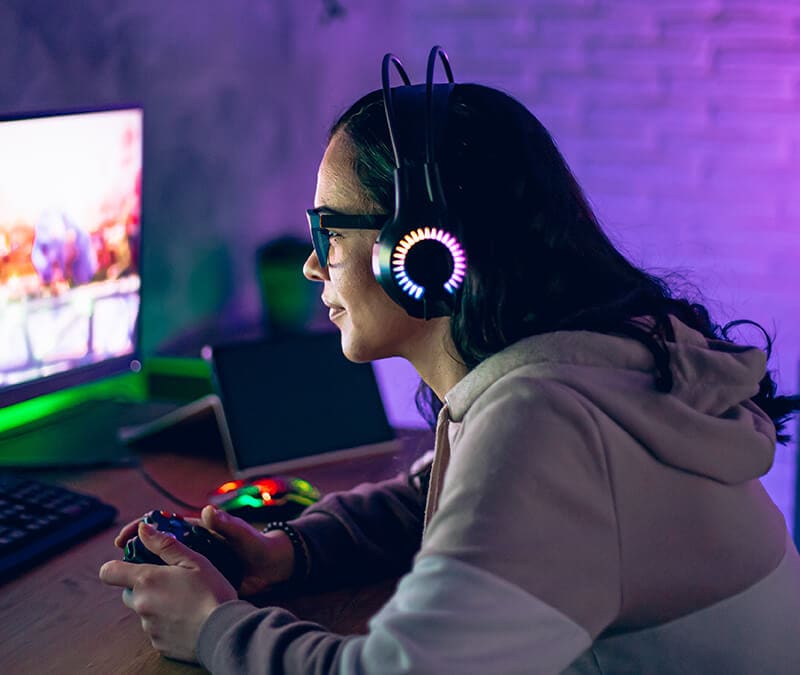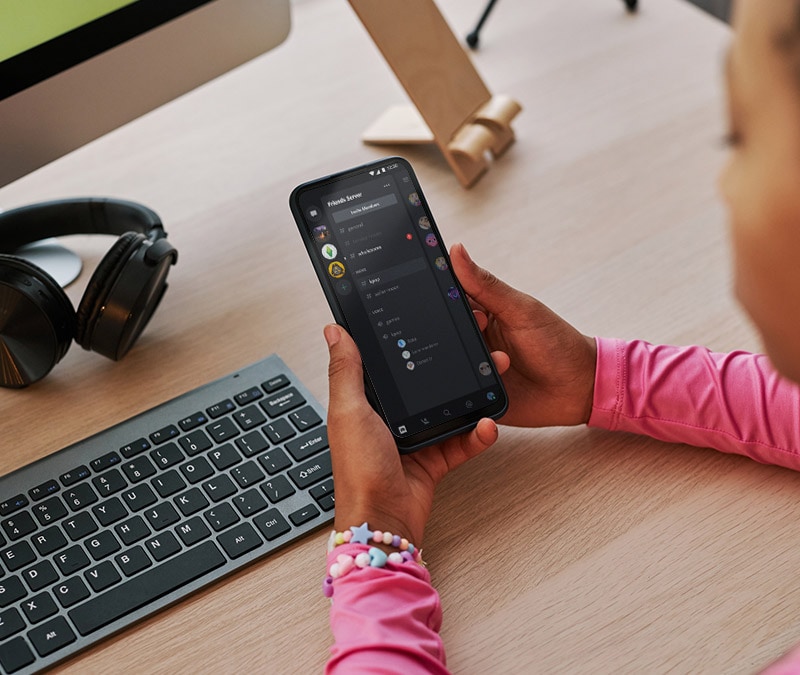The grey world of key selling: Grey market sites come with many risks
What can happen if you buy a discounted activation key from a grey-market seller? Plenty, and none of it is good. Learn more.


Get Norton 360 for Gamers
From casual to hardcore gamers, Norton 360 for Gamers gives you multiple layers of protection for your PC and devices, game accounts and digital assets.
Video games aren't cheap, with most major new releases costing at least $60. That's a big financial hit for the average gamer. It's little surprise, then, that some gamers look for other places to buy their games than the normal places, the so-called grey market.
But if you're tempted to purchase a video game through the grey market, be careful: Yes, you might be able to find a new-release video game at deep discount. But you might also pick up a virus, accidentally install malware on your computer, or purchase an activation key that doesn't work.
The grey market comes with plenty of risk. Gamers who want to avoid that risk should only purchase their games from official and reputable sources.
What is the grey market?
The grey market, as its name suggests, is a place to buy video games that isn't illegal but might not be totally ethical. That's the "grey" part of the name.
The grey market is made up of ecommerce sites that sell activation keys for games, including newer titles. They sell these at reduced prices, making them attractive for consumers who are struggling with the often-high prices of their favorite video-game series.
The problem? These sites often sell activation keys that might be acquired with stolen credit card numbers. Others might be populated with activation keys that are either fake or illegitimate.
And maybe worst of all? When you buy from grey market sites, you aren't supporting the developers that make these games. You might think the prices of these games are too high. But if there is no financial support for the developers and coders who create games, there's no guarantee that these companies will be able to continue creating new titles or sequels.
The dangers of buying discount keys
What can happen if you buy a discounted activation key from a grey-market seller? Plenty, and none of it is good.
Your activation key might not last long. The activation keys being sold on grey sites might have originally been intended only for journalists who were reviewing these games. Publishers might disable these keys after a certain period. If you buy one, you might find that it no longer works after a few days, leaving you out the money you spent.
Or maybe that activation key was stolen. In other cases, you might buy an activation key that was bought by a scammer with a stolen credit card number. If this theft is reported, the publisher again might revoke the key. This will leave you with a key that doesn't work.
The activation keys might be fake. Some scammers sell activation keys that simply don’t work. If you buy one of these fake keys, you might struggle to get any refund.
Your seller might be a scammer. You might also be tempted to purchase an existing account from users at online gaming sites like Steam, Origin, or Green Man Gaming. But beware of scammers. You might encounter a seller at these sites offering you an account filled with some of your favorite games, all at a discount price. But once you pay up, that scammer disappears, taking your money and not providing you with the account, or games, you expected.
If this happens to you, you won't be able to recoup your losses. Gaming sites like Steam prohibit users from selling their accounts. If you bought someone's account, then, your purchase isn't a legal one, and you won't be able to report the scam.
Thieves might try to steal your financial information. Be careful when purchasing activation keys from grey market sites that you don’t give cybercriminals access to your bank account or credit card information. Providing your credit card information to sellers you don’t know can be dangerous. That’s why it’s safer to make purchases from established online sellers or game companies.
Watch out for malware. Gamers desperate for free games might skip the grey market and turn to online piracy, downloading pirated games from sketchy sites. Be careful, though: Not only is this illegal, the downloads are often embedded with malware that can infect your computer. Scammers might be able to steal your online credit card or bank account information or remotely take control of your computer if they successfully infect your devices with malware.
Protecting yourself from grey market threats
Fortunately, there are some easy steps you can take to help protect yourself from these dangers.
Don’t buy from grey market sites. One of the surest way to keep your computers and your personal information safe and to avoid purchasing stolen or defective games? Don’t buy games from grey market sites. Only purchase your games from reputable retailers or straight from the developers. Yes, this will cost more money. But it will also reduce the chance of buying a stolen product that won’t work or of exposing your computer to viruses and malware.
Only purchase games with credit cards, not debit cards. If you do purchase an activation key from a grey market site, pay with your credit card. Don’t use your debit card. Why? Credit cards often offer more fraud protection.
Say you buy an activation key and it doesn’t work. If you made your purchase with a credit card, you can dispute the charge. Your credit card provider might ask you to provide documentation proving the purchase, but usually you can cancel the transaction. With a debit card, the money you spent is already gone.
Use PayPal or similar services to help protect your identity. When buying games from shadier sources, it’s safer to use online bill-paying services such as PayPal, Google Pay, Skrill, WePay or one of the other many alternatives*. When you use such services, the buyers won’t see your credit card numbers. This can help prevent credit card fraud in which scammers use your credit card information to make unauthorized purchases.
Use two-factor authentication on gaming sites. Whenever you sign up to an online gaming site, make sure to rely on two-factor authentication for a better level of security. With two-factor authentication enabled, you must provide two pieces of information before logging onto a site. Say you want to log onto your favorite gaming site. You’ll first provide your username and password. The site will then send a code to your smartphone or authenticator app (try not to use your email address). You’ll have to enter this code before you can log onto the site.
Two-factor authentication makes it more difficult for cyberthieves to use your gaming accounts to purchase games in your name. The inconvenience of that extra log-in step is more than outweighed by the increased security.
* The inclusion of websites, links or providers does not imply endorsement or support of any company, product or provider listed herein. This article is not intended to be a comprehensive listing of features, services or prices which may or may not apply to each vendor listed, and the features and services listed herein are subject to change.

Get Norton 360 for Gamers
From casual to hardcore gamers, Norton 360 for Gamers gives you multiple layers of protection for your PC and devices, game accounts and digital assets.
Editorial note: Our articles provide educational information for you. Our offerings may not cover or protect against every type of crime, fraud, or threat we write about. Our goal is to increase awareness about Cyber Safety. Please review complete Terms during enrollment or setup. Remember that no one can prevent all identity theft or cybercrime, and that LifeLock does not monitor all transactions at all businesses. The Norton and LifeLock brands are part of Gen Digital Inc.





Want more?
Follow us for all the latest news, tips, and updates.